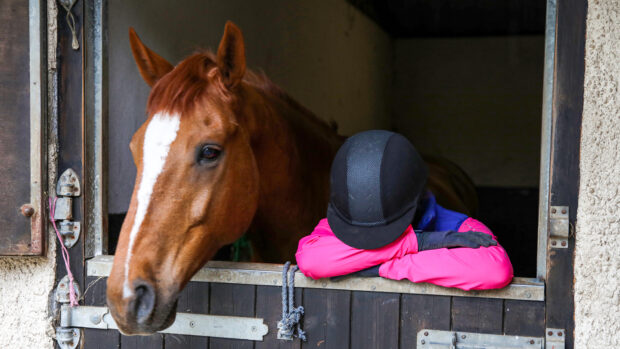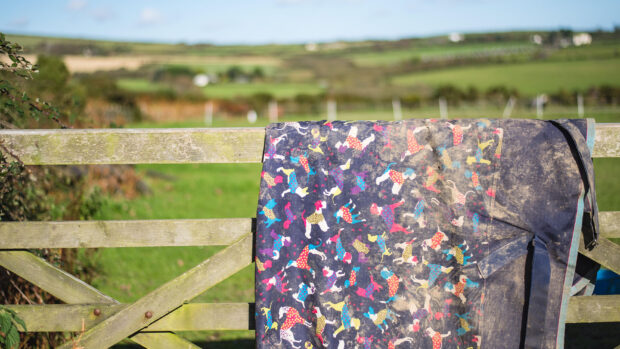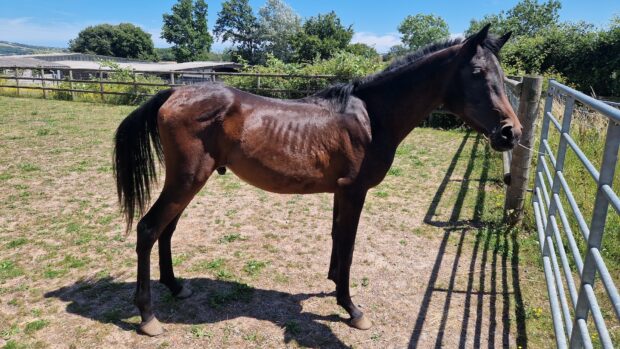Showjumper, producer of young horses, trainer and livery yard owner, Joe Trunkfield, reveals how the cost-of-living crisis is affecting his business and his sport
Everyone is busy with goals for the new year, but the cost-of-living crisis is affecting all aspects of the sport, from staff to show centres.
I worked my apprenticeships with Corinne Beech (née Collins) and Euro Sport Horse, learning all about the running costs of a competition yard before setting up on my own, although my parents always told me, ‘You’re not going to earn a living being a showjumper’ and they were right!
It’s a challenge between being a showjumper versus a businessman.
The biggest struggle of running a yard now is offering fully comprehensive livery at £250 per week. That’s £35 a day to provide facilities, bedding, feed, rugs, tack, insurance, vehicles, electricity and a wage.
Champion jockey AP McCoy compared winning and his competitive satisfaction to an addiction, and all riders find themselves hooked on the sport.
A successful show or exciting young horse motivates and inspires, pushing struggles with your bank balance or impending rent to the back of your mind. But total passion can leave your business in jeopardy. On more than one occasion I’ve needed to win to pay the bill and get home. To succeed, you need competitive horses. As Holly Smith has said, you have to sell a lot of normal horses to fund the good ones yet the real money is in selling the good ones.
The opportunity for being successful on talent and hard work alone has gone. The high-end investors and owners understandably want to see their horses at the best shows and in top-quality facilities, which only come from well-funded yards.
Feeling the squeeze
Harder times are certainly ahead and I’ve already noticed conflict between show centres and competitors. Riders are quick to complain about the rising costs of entry fees, hook-ups and stabling while prize money remains the same. I understand the competitors’ struggle but can also see the organisers’ view.
Those at Arena UK told me their electricity bill has doubled, with that for December – a quiet month – coming in at £11,000. They said, “Staffing costs have risen but we are short-staffed as no-one wants to work. Food costs and shavings have gone up. As wages rise so does the insurance, but none of the riders want to pay more. The winter classic shows cost £15,000 before a horse sets foot in the arena.”
Speaking as a young horse producer, there is no better place for horses to learn their job than in the ring, be it a local show, a dedicated young horse event with a big atmosphere, or our county shows. What better production system is there for a seven-year-old than to jump a 1.30m or accumulator at a county show and experience everything from bouncy castles to cattle and motorbikes?
However, the cost of diesel means that attending these shows with the mindset of producing, more than being competitive, is no longer an option. I’ve had to cut down on the number of shows I go to and I am doing more of this training at home instead, therefore not supporting my local centres. I wonder if this will affect the horses later in their careers?
How do we adapt?
What can British Showjumping, which receives membership fees from centres, competitors, owners and officials, do to help the future of the sport? It used to contribute to the prize money for the winter classic series. Why has that stopped?
I’d also like to see a clearer system in the sport between professionals earning a living and the hobby rider. Will we lose our rising stars as a result of soaring costs?
The talented yet not wealthy rider could certainly find that freelance training or staying at home backing livery horses is the way forward financially. Equally, talented horses may never get to fulfil their potential as the professional has to sell them to the wealthy amateur in order to make a living.
The current financial situation is having a massive effect; let’s hope that we can start to find steps towards a brighter future.
● What do you think is the way forward? Let us know at hhletters@futurenet.com, including your name, local town and county for the chance to have your thoughts published in a future edition of Horse & Hound magazine
- This exclusive column will also be available to read in Horse & Hound magazine, on sale Thursday 19 January
You may also be interest in…

‘This means the world’: Whitaker’s thrilling start to 2023 and Ehning versus von Eckermann – who won this week

‘I was very rusty!’ Mother makes showjumping comeback – and wins 1.55m six-bar

‘100% natural’ boy jumps his dad’s 22-year-old former top showjumper

Subscribe to Horse & Hound magazine today – and enjoy unlimited website access all year round
Horse & Hound magazine, out every Thursday, is packed with all the latest news and reports, as well as interviews, specials, nostalgia, vet and training advice. Find how you can enjoy the magazine delivered to your door every week, plus options to upgrade your subscription to access our online service that brings you breaking news and reports as well as other benefits.




